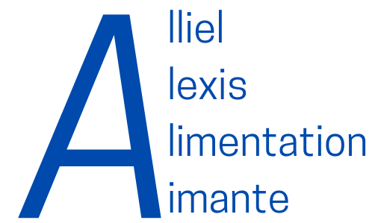Breaking the Metabolic-Emotional Cycle
PCOS and Eating Disorders: Understanding the Hidden Connection
Polycystic ovary syndrome affects 8-13% of reproductive-aged women globally, making it the most common endocrine disorder among women—yet up to 75% of cases remain undiagnosed. For English-speaking expatriates in Paris, this statistic becomes particularly concerning when you consider that women with PCOS have 53% higher odds of developing an eating disorder, with three times the risk of binge eating disorder specifically. The intersection of PCOS and eating disorders creates a complex web of metabolic, hormonal, and psychological factors that can feel overwhelming, especially when you're navigating a foreign healthcare system while managing symptoms that many medical professionals still don't fully understand.
The relationship between PCOS and eating disorders is bidirectional and deeply rooted in biology, involving insulin resistance, hormonal imbalances, and the psychological impact of living with a visible, chronic condition. Recent 2024 meta-analysis research confirms what many women have long suspected: PCOS doesn't just make weight management difficult—it fundamentally alters appetite regulation, creates intense food cravings, and sets up a metabolic environment where traditional diet approaches often fail spectacularly, frequently triggering disordered eating behaviors in the process.
Understanding this connection is crucial for expatriates in Paris who may be isolated from their usual support networks and struggling to communicate complex symptoms in a second language. The shame and frustration that often accompany PCOS-related eating behaviors are not personal failures but predictable responses to a medical condition that requires specialized, compassionate care.
The PCOS-insulin resistance eating cycle: Why your body fights against you
Insulin resistance, affecting 50-80% of women with PCOS, creates a vicious metabolic cycle that directly impacts eating behaviors. When your cells become resistant to insulin, your body produces more insulin to compensate. This excess insulin triggers intense hunger signals, promotes fat storage (particularly around the midsection), and creates dramatic blood sugar fluctuations that drive overwhelming cravings for high-carbohydrate foods.
Here's what's actually happening in your body: Despite eating adequate amounts of food, your cells can't effectively use glucose for energy, sending "starvation" signals to your brain. This creates the paradoxical situation where you can feel ravenously hungry shortly after eating, leading to what researchers describe as "starvation-like" hunger despite adequate caloric intake. Your brain interprets this cellular energy shortage as genuine starvation, triggering primitive survival mechanisms that make food thoughts feel urgent and uncontrollable.
The hormonal cascade extends beyond insulin. PCOS involves elevated androgen levels, disrupted leptin signaling (your satiety hormone), altered ghrelin patterns (your hunger hormone), and reduced cholecystokinin (CCK) secretion, which normally signals fullness after meals. This creates a perfect storm where you may eat a full meal but still feel unsatisfied, leading to continued eating or intense cravings within hours.
For expatriates in Paris, these biological realities can feel particularly challenging when French food culture emphasizes structured meal times and portion control. Your PCOS-driven hunger doesn't follow cultural eating schedules, and attempts to conform to local eating patterns may actually worsen the metabolic dysfunction, creating additional stress and shame around food choices.
Body image trauma and the psychological landscape of PCOS
Women with PCOS show significantly worse body image scores across all measures, with body image distress fully mediating the relationship between PCOS and depression/anxiety. The visible symptoms of PCOS—weight gain, hirsutism, acne, male-pattern hair loss—create profound psychological distress that goes far beyond simple appearance concerns. You're dealing with symptoms that challenge societal definitions of femininity, often in cultures like France where appearance and grooming standards can feel particularly intense.
The psychological impact of PCOS creates fertile ground for eating disorder development. Research shows that 76.5% of women with PCOS experience anxiety symptoms compared to 56.5% of controls, while depression affects 28% versus 19.2% in the general population. These mental health challenges, combined with the frustration of bodies that don't respond to conventional diet and exercise approaches, can lead to increasingly desperate attempts at control through food restriction or, conversely, giving up entirely and engaging in binge eating behaviors.
As an expatriate, you're managing these challenges while potentially feeling disconnected from your cultural identity and support systems. The stress of adapting to French beauty standards, professional expectations, and social norms can exacerbate both PCOS symptoms and eating disorder risk. Language barriers may prevent you from fully expressing the complexity of your experience to healthcare providers, leading to oversimplified treatment recommendations that don't address the full scope of your needs.
The shame spiral often begins early in the PCOS journey. You may have spent years being told that your symptoms are simply due to lack of willpower or self-control, leading to internalized beliefs that your eating behaviors reflect moral failings rather than biological realities. This self-blame can perpetuate cycles of restriction and binge eating that worsen both PCOS symptoms and psychological distress.
Evidence-based treatment: Moving beyond the diet mentality
The 2023 International PCOS Guidelines now mandate screening for eating disorders before providing lifestyle advice, recognizing that traditional weight-loss approaches can be harmful for women with existing disordered eating patterns. This represents a crucial shift in PCOS care away from weight-focused interventions toward comprehensive health approaches that address both metabolic and psychological needs.
Effective PCOS treatment requires addressing insulin resistance as the root cause rather than focusing solely on weight management. Metformin, the first-line medication for PCOS-related insulin resistance, helps stabilize blood sugar and reduce the intense hunger signals that drive disordered eating. Recent research on GLP-1 agonists like semaglutide shows promising results for both metabolic improvement and appetite regulation in PCOS, offering new hope for women who haven't responded to traditional treatments.
Nutritional interventions must be individualized and eating-disorder-informed. The Mediterranean diet shows the strongest evidence for PCOS management, emphasizing anti-inflammatory foods, healthy fats, and complex carbohydrates that support stable blood sugar. However, these dietary approaches must be implemented carefully to avoid triggering restrictive eating patterns. The goal is nourishment and metabolic support, not weight loss through restriction.
Psychological treatment is equally crucial. Cognitive behavioral therapy (CBT) specifically adapted for eating disorders helps address the thought patterns and behaviors that maintain disordered eating cycles. Body image therapy addresses the appearance-related distress that's central to PCOS-related eating disorders. Mindfulness-based interventions show particular promise for helping women reconnect with hunger and fullness cues that may have been disrupted by years of dieting or hormonal dysfunction.
Creating integrated care teams in Paris: A practical guide for expatriates
Finding comprehensive PCOS and eating disorder care in Paris requires building a multidisciplinary team that understands both conditions. Our specialized practice, with locations in the 6th and 20th arrondissements as well as Le Raincy, provides integrated care specifically designed for English-speaking expatriates dealing with hormonal eating disorders.
Start by identifying an endocrinologist or gynecologist who understands PCOS beyond basic symptom management. Use Doctolib to search for English-speaking specialists, specifically looking for practitioners who list PCOS or "syndrome des ovaires polykystiques" as specialties. Be prepared to advocate for comprehensive testing, including glucose tolerance tests, lipid panels, and hormone assessments that go beyond basic testosterone levels.
Insurance navigation is crucial for accessing comprehensive care. The French healthcare system covers basic PCOS medical treatment through Sécurité Sociale, but specialized eating disorder treatment may require private insurance or out-of-pocket payment. Many expatriate insurance plans offer mental health coverage—verify what psychological and nutritional counseling services are included in your policy.
When working with French healthcare providers, bring translated documentation of your symptoms and treatment history. PCOS is "syndrome des ovaires polykystiques" in French, but you may also hear "syndrome de Stein-Leventhal" or simply "SOPK." Many providers are familiar with the condition, but fewer understand the eating disorder connections, so be prepared to educate your team about recent research findings.
Building your care team should include a medical provider for hormonal management, a specialized dietitian for eating disorder-informed nutritional support, and a psychologist familiar with both PCOS and eating disorders. This team approach addresses the complex interplay between metabolic, nutritional, and psychological factors that maintain PCOS-related eating disorders.
Regular monitoring and adjustment are essential. PCOS symptoms and eating behaviors can change over time, requiring ongoing assessment and treatment modifications. Keep detailed records of symptoms, eating patterns, medications, and psychological well-being to help your care team make informed decisions about treatment adjustments.
Conclusion
PCOS and eating disorders represent a complex intersection of biological, psychological, and social factors that require specialized, compassionate care. The outdated approach of simply recommending weight loss and willpower has been replaced by evidence-based understanding of the metabolic and hormonal factors that drive disordered eating in PCOS.
As an expatriate in Paris, you have access to high-quality healthcare that can effectively address both PCOS and associated eating disorders when you know how to navigate the system. The key is understanding that your eating struggles are not personal failures but predictable responses to a complex medical condition that deserves proper treatment.
Recovery is possible with the right support team and treatment approach. By addressing insulin resistance, supporting mental health, and developing a non-restrictive relationship with food, you can break free from the cycles that have kept you trapped and develop sustainable strategies for managing PCOS while nourishing your body and honoring your needs.
Living and eating are two sides of the same coin. Lighten your relationship with food and free yourself from what doesn't serve you!
Sources and References
Endocrine Society - Eating disorder risks elevated among women with PCOS
Oxford Academic - Increased Prevalence of Binge Eating Disorder and Bulimia Nervosa in Women With Polycystic Ovary Syndrome
National Center for Biotechnology Information (NCBI) - PCOS and eating disorders research
International PCOS Guidelines 2023 - Evidence-based guidelines for assessment and management
Journal of Clinical Endocrinology & Metabolism - Meta-analysis on PCOS and eating disorders
📚 Related Resources: Understand connections with endometriosis and eating behaviors and PMDD and food compulsions. For weight concerns, see our obesity management approach.


Vivre et manger sont les deux faces de la même pièce
Lighten your relationship with food and free yourself from what hinders you!
+33 6 22 41 55 21
© 2024. All rights reserved.
RPPS : 10007258733
N° ADELI : 75 95 0878 1
